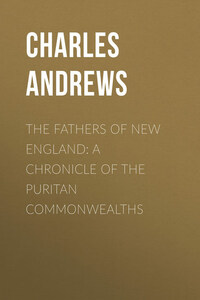CHAPTER I
THE COMING OF THE PILGRIMS
The Pilgrims and Puritans, whose migration to the New World marks the beginning of permanent settlement in New England, were children of the same age as the enterprising and adventurous pioneers of England in Virginia, Bermuda, and the Caribbean. It was the age in which the foundations of the British Empire were being laid in the Western Continent. The "spacious times of great Elizabeth" had passed, but the new national spirit born of those times stirred within the English people. The Kingdom had enjoyed sixty years of domestic peace and prosperity, and Englishmen were eager to enter the lists for a share in the advantages which the New World offered to those who would venture therein. Both landowning and landholding classes, gentry and tenant farmers alike, were clamoring, the one for an increase of their landed estates, the other for freedom from the feudal restraints which still legally bound them. The land-hunger of neither class could be satisfied in a narrow island where the law and the lawgivers were in favor of the maintenance of feudal rights. The expectations of all were aroused by visions of wealth from the El Dorados of the West, or of profit from commercial enterprises which appealed to the cupidity of capitalists and led to investments that promised speedy and ample returns. A desire to improve social conditions and to solve the problem of the poor and the vagrant, which had become acute since the dissolution of the monasteries, was arousing the authorities to deal with the pauper and to dispose of the criminal in such a way as to yield a profitable service to the kingdom. England was full of resolute men, sea-dogs and soldiers of fortune, captains on the land as well as the sea, who in times of peace were seeking employment and profit and who needed an outlet for their energies. Some of these continued in the service of kings and princes in Europe; others conducted enterprises against the Spaniards in the West Indies and along the Spanish Main; while still others, such as John Smith and Miles Standish, became pioneers in the work of English colonization.
But more important than the promptings of land-hunger and the desire for wealth and adventure was the call made by a social and religious movement which was but a phase of the general restlessness and popular discontent. The Reformation, in which this movement had its origin, was more than a revolt from the organization and doctrines of the mediæval church; it voiced the yearning of the middle classes for a position commensurate with their growing prominence in the national life. Though the feudal tenantry, given over to agriculture and bound by the conventions of feudal law, were still perpetuating many of the old customs, the towns were emancipating themselves from feudal control, and by means of their wealth and industrial activities were winning recognition as independent and largely self-sufficing units. The gild, a closely compacted brotherhood, existing partly for religious and educational purposes and partly for the control of handicrafts and the exchange of goods, became the center of middle-class energy, and in thousands of instances hedged in the lives of the humbler artisans. Thus it was largely from those who knew no wider world than the fields which they cultivated and the gilds which governed their standards and output that the early settlers of New England were recruited.
Equally important with the social changes were those which concerned men's faith and religious organization. The Peace of Augsburg, which in 1555 had closed for the moment the warfare resulting from the Reformation, not only recognized the right of Protestantism to exist, but also handed over to each state, whether kingdom, duchy, or principality, full power to control the creed within its borders. Whoever ruled the state could determine the religion of his subjects, a dictum which denied the right of individuals or groups of individuals to depart from the established faith. Hence arose a second revolt, not against the mediæval church and empire but against the authority of the state and its creed, whether Roman Catholic, Anglican, Lutheran, or Calvinist, a revolt in which Huguenot in France battled for his right to believe as he wished, and Puritan in England refused to conform to a manner of worship which retained much of the mediæval liturgy and ceremonial. Just as all great revolutionary movements in church or state give rise to men who repudiate tradition and all accretions due to human experience, and base their political and religious ideals upon the law of nature, the rights of man, the inner light, or the Word of God; so, too, in England under Elizabeth and James I, leaders appeared who demanded radical changes in faith and practice, and advocated complete separation from the Anglican Church and isolation from the religious world about them. Of such were the Separatists, who rejected the Anglican and other creeds, severed all bonds with a national church system, cast aside form, ceremony, liturgy, and a hierarchy of church orders, and sought for the true faith and form of worship in the Word of God. For these men the Bible was the only test of religious truth.








